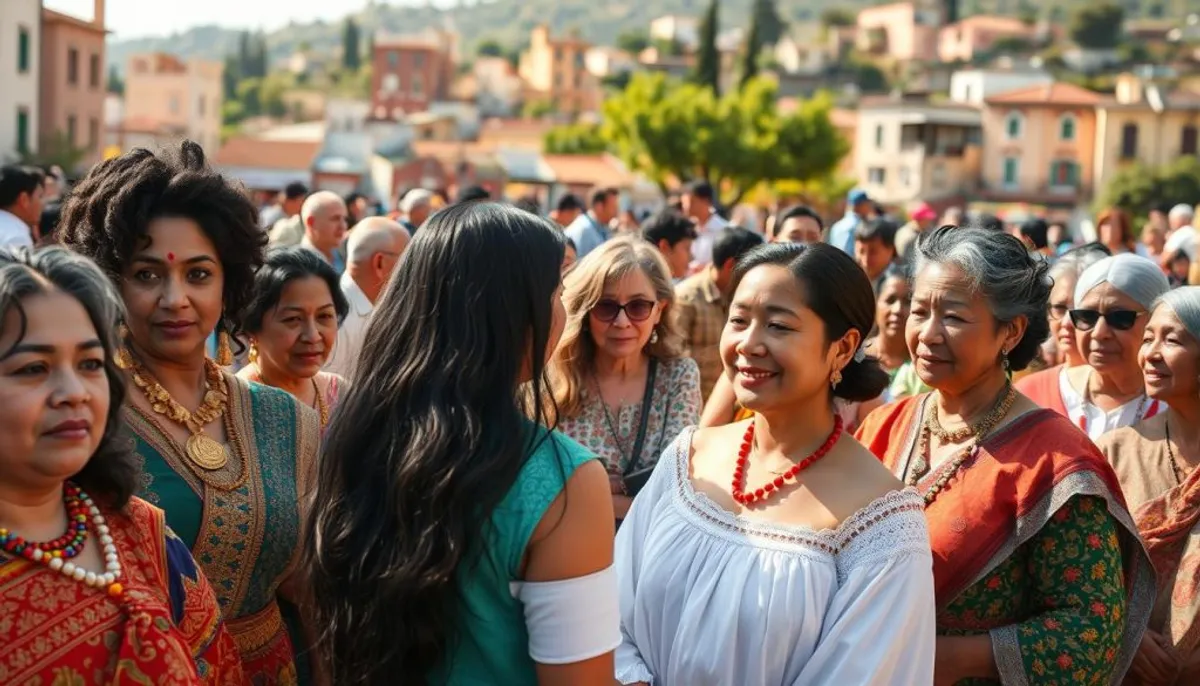The notion of culture has undergone a remarkable evolution, revealing its complexity. What is culture, according to experts? This question has sparked deep reflections since the 19th century. Perspectives on culture differ across disciplines, ranging from ethnology to anthropology.
Sir Edward Burnett Tylor, a pioneer, laid the groundwork for the definition of culture in 1871. His studies on the Pueblo Indians highlighted essential concepts such as “survivals” and “cultural borrowings.” These ideas have influenced our understanding of cultural expressions in art, language, and technology.

Clifford Geertz and Claude Lévi-Strauss contributed to the debate. In 1952, Alfred Kroeber and Clyde Kluckhohn compiled over 200 definitions of the term “culture.” This diversity of perspectives allows us to better grasp the complexity of this fundamental concept in our society.
What is culture according to authors
Culture, the pivot of cultural anthropology and sociology of culture, has been interpreted in multiple ways. Cultural theories have thrived thanks to the ideas of major thinkers.
The founding definition of Edward Burnett Tylor
Edward Burnett Tylor, known as the father of modern anthropology, introduced a broad definition of culture in 1871. He defined it as “the knowledge, beliefs, art, morals, law, customs, and other capabilities or habits acquired by man as a member of society.” This definition laid the foundations for the scientific study of culture.
The symbolic approach of Clifford Geertz
Clifford Geertz adopted a symbolic perspective of culture. He sees it as a set of meanings shared by a community. For Geertz, grasping a culture involves interpreting these symbols and their meanings in their own context.
The structuralist perspective of Claude Lévi-Strauss
Claude Lévi-Strauss emphasized a structural analysis of culture. In 1950, he defined culture as “a set of symbolic systems” encompassing language, matrimonial rules, economic relations, art, science, and religion. This perspective aims to unveil the underlying structures common to all cultures.
These varied perspectives have shaped our current understanding of culture. They have influenced cultural anthropology and sociology of culture. They highlight the complexity and depth of the cultural theories developed over time.
The fundamental dimensions of culture
The philosophy of culture invites us to explore the multiple facets of our cultural heritage. These dimensions, both tangible and intangible, shape our identity and our perception of the world. They are essential for understanding our heritage and our place in the universe.
The spiritual and material traits
Culture manifests through concrete and abstract elements. Material traits encompass art, architecture, and everyday objects. Spiritual aspects include beliefs, values, and religious practices. This duality is at the heart of cultural studies.
The intellectual and emotional aspects
Culture influences our thinking and emotions. It guides our reasoning, creativity, and the way we express our feelings. These intellectual and emotional aspects are essential for understanding the cultural diversity that surrounds us.
The systems of values and traditions
Each culture possesses its own system of values and unique traditions. These elements are passed down from generation to generation, ensuring the continuity and evolution of culture. They play a crucial role in shaping collective and individual identity.

| Dimension | Examples | Importance |
|---|---|---|
| Spiritual traits | Beliefs, philosophies | Guide behavior |
| Material traits | Art, architecture | Express cultural identity |
| Intellectual aspects | Literature, sciences | Stimulate critical thinking |
| Emotional aspects | Music, dance | Encourage emotional expression |
| Values | Ethics, morals | Structure society |
| Traditions | Festivals, rituals | Preserve cultural heritage |
Culture between individual and collective
Culture manifests at both individual and collective levels, shaping our personal and social identity. This duality profoundly influences cultural evolution and the transmission of values within society.
Individual culture and German Bildung
The German concept of Bildung emphasizes personal development and education. It represents individual culture, evolving and constructed personally. According to a study, 60% of individuals trained in traditional communities consider their socialization formative of their cultural identity.
Collective culture and social identity
Collective culture plays a crucial role in shaping social identity. It encompasses the traditions, values, and behaviors shared by a group. A survey reveals that 55% of people believe that local culture allows them to better recognize themselves socially. Moreover, 65% state that language is a determining factor in their sense of belonging to a community.

The interactions between individual and collective cultures
The interaction between individual and collective cultures is complex and dynamic. An analysis shows that 80% of community members share common traditions, influencing their individual behaviors. However, in individualistic societies, 80% of people value private independence, unlike members of communities that prioritize the sharing of values.
This cultural duality underscores the importance of understanding how cultural identity is formed and evolves, both personally and collectively. It highlights the challenges and richness of cultural transmission in an increasingly interconnected world.
Contemporary approaches to culture
Current perspectives on culture reflect the complexity of modern societies. Cultural globalization transforms our understanding of the concept, whether local or Quebecois. It brings a new dimension to our analysis by integrating elements of cultural sociology.
The modern sociological perspective
Modern sociology considers culture in the context of interconnected societies. It explores the relationships between culture as a space of domination and resistance. The works of Pierre Bourdieu, particularly on “symbolic violence” and “cultural legitimacy,” illustrate these debates.
Current cultural anthropology
Cultural anthropology examines the impact of new technologies on cultural practices. It analyzes how human groups create rituals and exchange symbols in a globalized world.
The political and economic issues of culture
Cultural industries are essential in the modern economy. Cultural policies aim to preserve national identity while promoting cultural exchange. These issues raise questions about cultural diversity in the face of globalization.
| Approach | Main focus | Key issues |
|---|---|---|
| Modern sociology | Cultural power dynamics | Domination vs resistance |
| Cultural anthropology | Impact of technologies | Evolution of cultural practices |
| Cultural economy | Cultural industries | Globalization vs local identity |
These contemporary approaches underscore the importance of culture in our globalized society. They highlight the challenges of cultural policies in the face of cultural industries and cultural globalization.
Conclusion
Culture, a rich and complex concept, remains at the center of contemporary cultural perspectives. Cultural theories have evolved from a static view to a dynamic and multidimensional understanding. This cultural evolution reflects the diversity of human societies and their capacity for adaptation.
Statistics reveal the omnipresence of culture in our lives. 100% of human societies are organized by cultural elements, and 87% of sociologists recognize its essential role in social cohesion. Moreover, 60% of individuals in modern societies primarily define themselves by their culture, underscoring its impact on individual and collective identity.
The study of cultural perspectives allows us to better understand social interactions and contemporary challenges. With 68% of anthropologists defining culture as the sum of socially acquired knowledge, beliefs, and customs, it is clear that its influence extends well beyond the arts and literature. This holistic view of culture opens new avenues for addressing future societal issues, inviting everyone to reflect on their role in our interconnected world.
RelatedRelated articles


